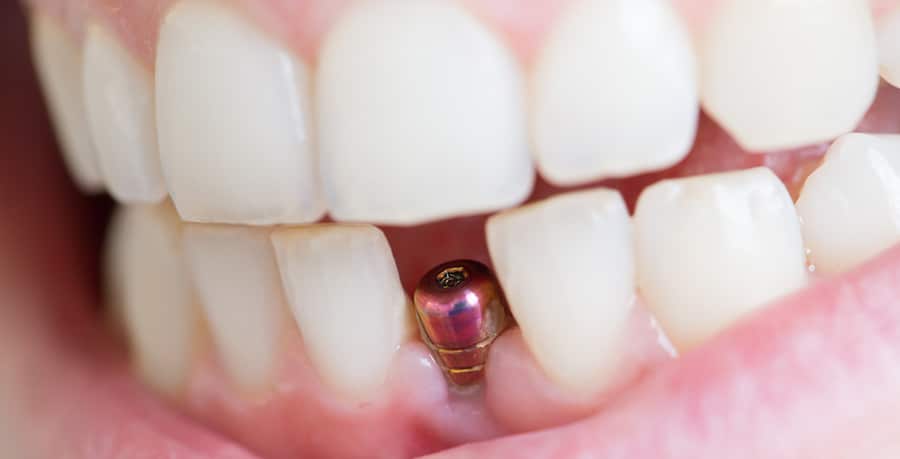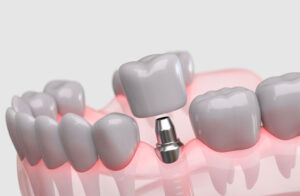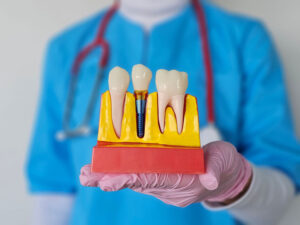First, it’s important that you avoid pushing on your dental implant with your tongue or creating a situation where your implant is being pulled to the side. Dental Implants feel weird at first but don’t try to rock your implant. But if you notice that an implant seems to be loose, it could be that it’s failing, though there are other possibilities.
Why You Shouldn’t Rock Your Implant
You’ve probably noticed that your natural teeth are able to move just a little bit. Even if your teeth are healthy, there should be a small amount of movement. That’s because your teeth are held in place by slightly stretchy material known as the periodontal ligament. More than about a hundredth of an inch of movement, and it’s considered a sign of gum disease.
But dental implants shouldn’t move at all. Instead of being held by a periodontal ligament, they should be secured directly in the bone, which allows for no movement. If there is movement, it may be a sign that the bone around the implant is failing.
Here’s the problem with rocking your implant: it creates pressure against the bone, and your body may respond by removing bone around the implant. If you do this with your natural teeth, there may be some bone lost, but new bone will grow. When the periodontal ligament is stretched, it stimulates the release of special cells that build up the bone. But without a periodontal ligament, the bone loss process can dominate over bone growth.
What Causes Your Implant to Feel Loose
One reason why your implant might move is that the dental crown might be loose. This isn’t a serious problem. We might be able to screw it down, or perhaps we have to replace the crown or the abutment that ties it to implant.
If your dental implant is moving, it’s possible that the problem is a loss of bone around the implant. This could be a sign that the implant is failing, or that it never properly integrated into the bone at all. If a dental implant is going to fail–which is very uncommon–it usually happens in the first year, and often because it fails to integrate.
Another reason why the bone may be disappearing around the implant is because of gum disease, called peri-implantitis when it affects your implants. If caught early, oral hygiene and antibiotics may be able to save the implant. If too late, we might have to remove the implant, treat the site, then replace it.
The only way we can know for sure is to examine the implant and maybe perform some imaging (x-rays or CT scans). If you would like us to evaluate your dental implant, or if you have questions about getting dental implants in Westchester County, please call for an appointment with our implant dentist at Advanced Dentistry of Mohegan Lake.





